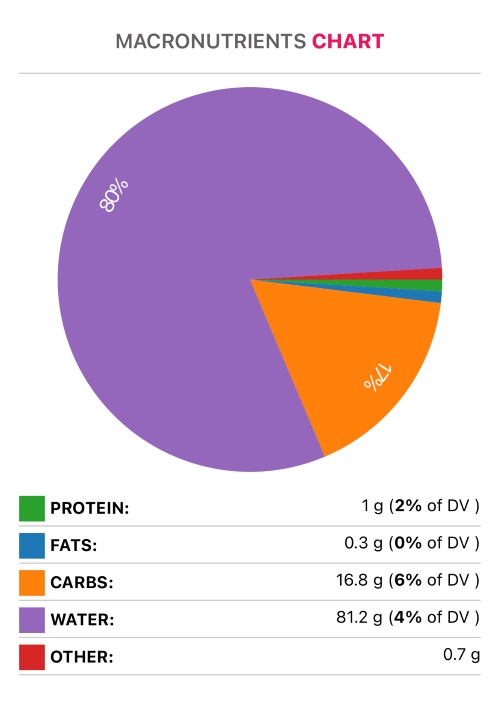Soursop and Diabetes - Is It Good For Diabetics

Introduction
This article will discuss how soursop can help control blood sugar levels and its beneficial effects on diabetes.
Glycemic Index and Carbohydrates
The glycemic index value of soursop has been measured to fall in the range of 30 to 32, which is considered a low glycemic index value (1, 2). Foods with low glycemic index values raise blood glucose levels more slowly.
To find glycemic index values for over 600 foods, you can visit our Glycemic index chart page.
The carbohydrate content of soursop is moderate: raw soursop contains 16.84g per 100g (of which 3.3g is fiber and 13.54g is net carbs) and 38g per average serving (one cup or 225g).
Soursop also is high in antioxidants, vitamin C, and fiber which can benefit blood glucose levels. This fruit falls in the top 25% of foods as a source of dietary fiber. Fiber may slow digestion and improve glycemic control, giving sugars more time to break down. Consumption of high dietary fiber foods may also be beneficial in preventing diabetes. According to research, higher dietary fiber intake is associated with a lower risk of type 2 diabetes (3).
Moderate soursop consumption will not raise blood glucose levels quickly due to a low glycemic index value. However, be mindful of how much soursop you eat, as one serving of soursop has a moderate amount of carbs.

Type-2 Diabetes
One study suggests that soursop may be beneficial in improving blood glucose levels (4). Soursop extract was given to 2 groups. The extract-treated group had blood sugar levels 5 times lower than the untreated group. These findings suggest that when combined with a healthy diet and an active lifestyle, soursop may benefit people with diabetes.
Some studies have reported the anti-inflammation effects of soursop in diabetes mellitus (5).
These fruits contain high levels of flavonoids that effectively inhibit the release of inflammatory mediators.
One study shows that soursop contains antibacterial properties as well (6). Soursop was able to inhibit the growth of multiple types of bacteria, including strains that cause gingivitis in those with diabetes.
References
- https://www.researchgate.net/publication/276419240
- https://www.sciencedirect.com/science/article/pii/S235261811500027X
- https://www.ncbi.nlm.nih.gov/pmc/articles/PMC8015811/
- https://pubmed.ncbi.nlm.nih.gov/20162043/
- https://pubmed.ncbi.nlm.nih.gov/22077164/
- https://www.ncbi.nlm.nih.gov/pmc/articles/PMC5198446/
